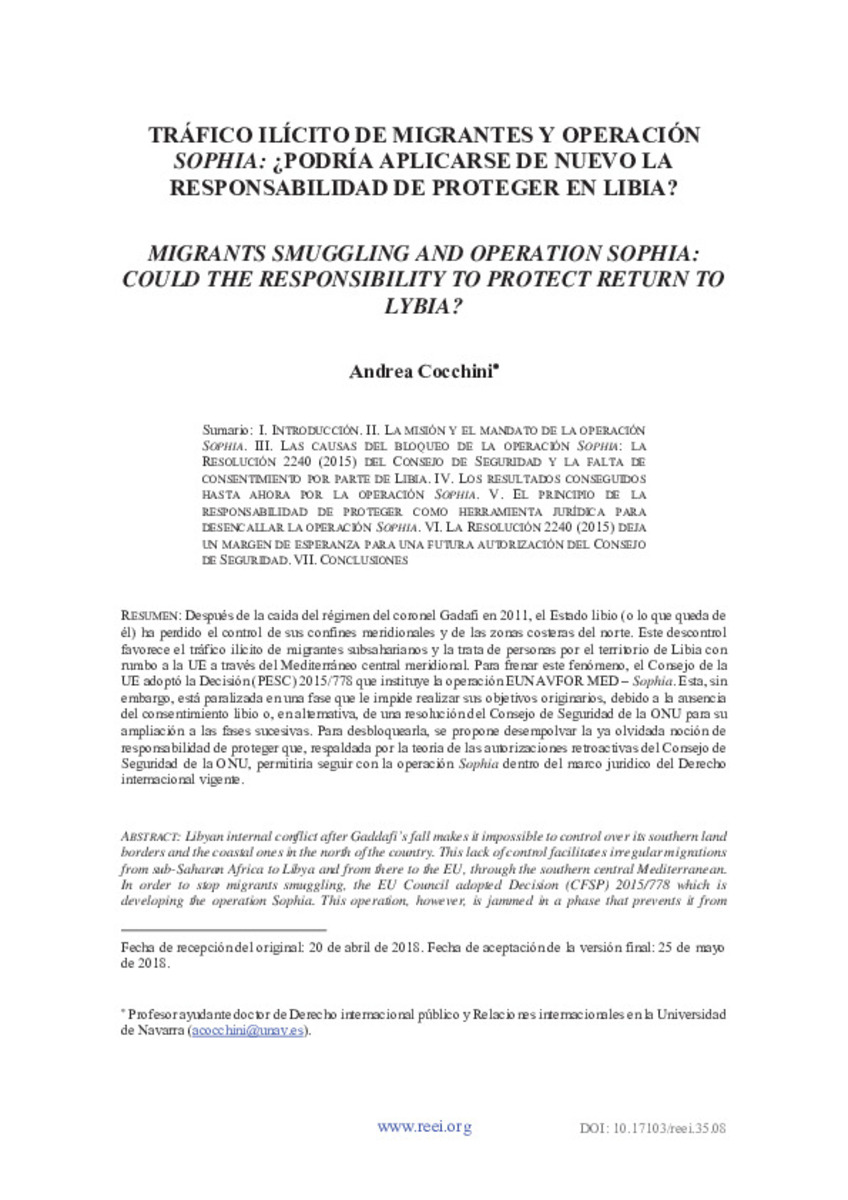Tráfico ilícito de migrantes y operación Sophia: ¿podría aplicarse de nuevo la responsabilidad de proteger en Libia?
Other Titles:
Migrants smuggling and operation sophia: could the responsibility to protect return to lybia?
Keywords:
Operación Sophia
Responsabilidad de proteger
Autorización retroactiva
Tráfico ilícito de migrantes
Decisión (PESC) 2015/778
Resolución 2240 (2015)
Operation Sophia
Responsibility to protect
Retroactive authorization
Migrants smuggling
Council Decision (CFSP) 2015/778
UN Security Council Resolution 2240 (2015)
Publisher:
Asociación Española de Profesores de Derecho Internacional y Relaciones Internacionales
Citation:
Cocchini, A. (Andrea). "Tráfico ilícito de migrantes y operación Sophia: ¿podría aplicarse de nuevo la responsabilidad de proteger en Libia?". Revista electronica de estudios internacionales. 35, 2018, 1 - 26
Statistics and impact
0 citas en

0 citas en

Items in Dadun are protected by copyright, with all rights reserved, unless otherwise indicated.







